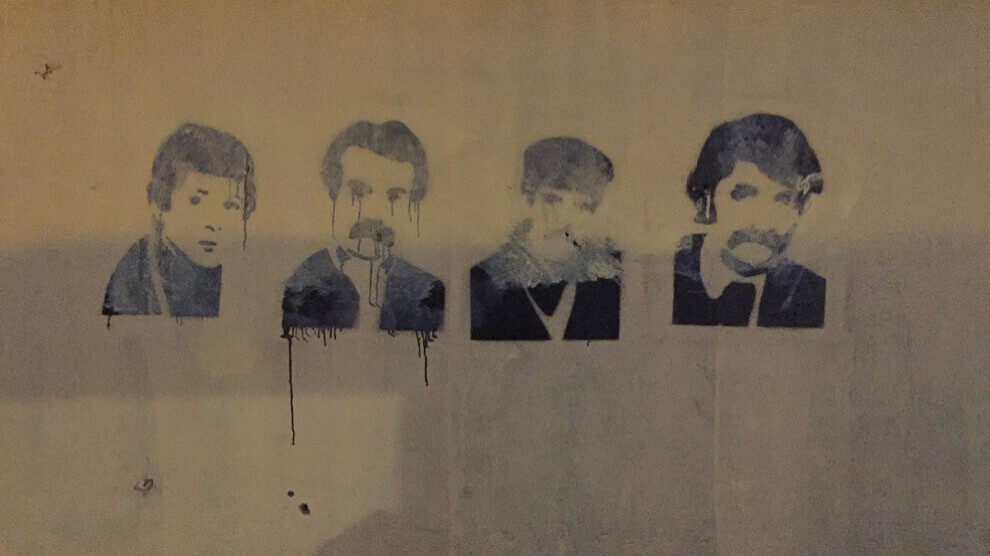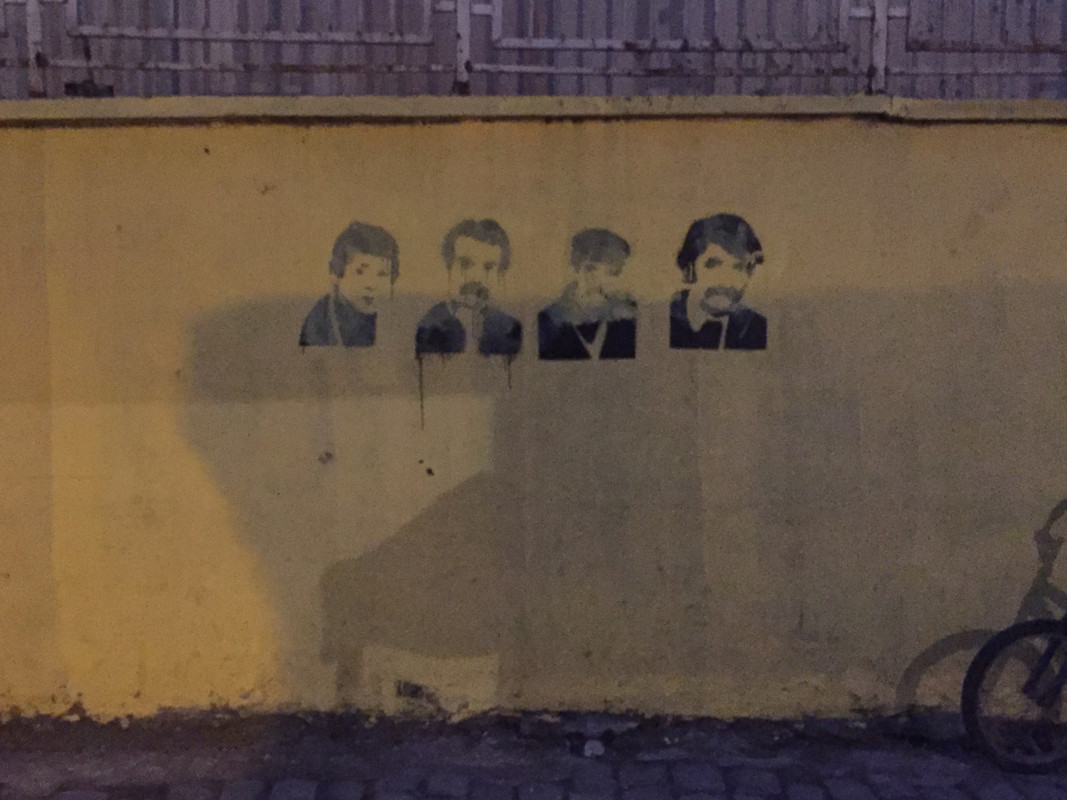"Spirit of July 14" on the walls of Amed
Since November 27, political prisoners in Turkey have been on a hunger strike in resistance to their degrading treatment. In Amed, murals of the pioneers of the "great death fast" of 1982 call for solidarity
Since November 27, political prisoners in Turkey have been on a hunger strike in resistance to their degrading treatment. In Amed, murals of the pioneers of the "great death fast" of 1982 call for solidarity

For the past month, political prisoners in Turkey have been resisting their degrading treatment with a hunger strike. They demand the lifting of Abdullah Öcalan's isolation and the concept of its physical, psychological and political annihilation. Outside the detention centers, the prisoners are receiving support for their resistance from different directions. In the Kurdish resistance stronghold of Amed (Diyarbakir), murals of the pioneers of the "Great Death Fast" of July 14, 1982, call for solidarity with the hunger-striking prisoners.
The stencils with the likenesses of PKK cadres Kemal Pir, Mehmet Hayri Durmuş, Akif Yılmaz and Ali Çiçek were discovered in the old district of Sur, which was extensively destroyed in the course of the Turkish military siege from November 2015. Kemal Pir and his companions were imprisoned in Diyarbakir prison in the early 1980s. For the Kurdish liberation movement, the building is synonymous with torture and resistance. The prison was built in 1980 by the Turkish Ministry of Justice as a type E prison and handed over to the junta on the day of the military coup on September 12.

As a military prison under martial law, the prison acquired a reputation for brutal methods of torture such as systematic beatings, pile hanging, electric shocks (in which special electrodes were attached to the genitals), sexual torture, rape, disco (the bathing in feces), deprivation of sleep, food and water for long periods of time, exercise under extreme temperatures, squeezing, pressing and stretching of body parts and genitals, burning with cigarettes and tearing out hair, nails and teeth.
First spark of resistance
On July 14, 1982, a death fast was declared to begin in the prison of Amed. The prisoners demanded the "end of torture, enforced military discipline and uniform clothing". This action is considered as the "first spark of resistance", but it was started not only to denounce the conditions in the prisons, but also to send a revolutionary signal to the people outside the prison walls, in the villages and cities, and to the leftist movements to incite the masses anew to fight against the oppressive regime of Turkey. 55 days after the beginning of the death fast, PKK cadre Kemal Pir lost his life. Prisoners Mehmet Hayri Durmuş, Ali Çiçek and Akif Yılmaz also died in the course of the action. The death fast has since been referred to as the "Great July 14 Resistance."
